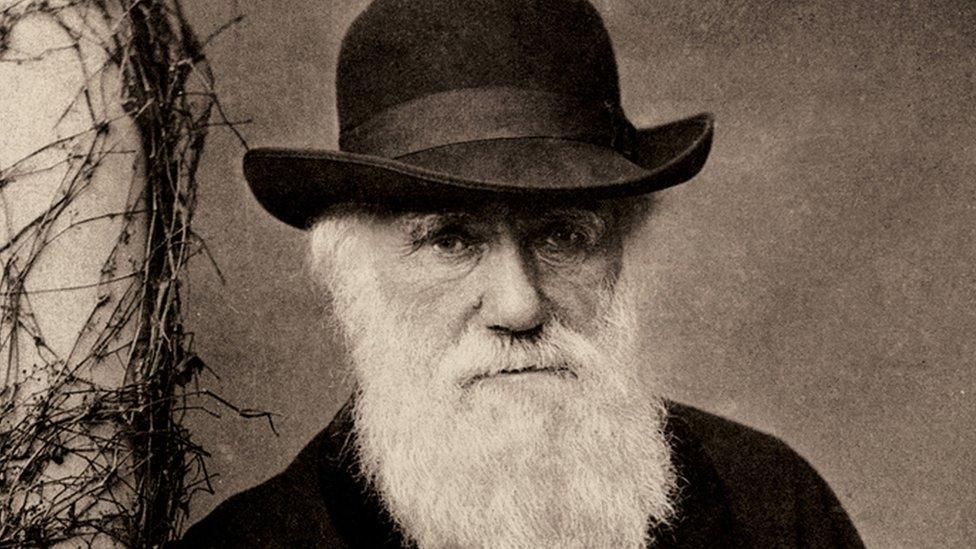Darwin legacy voyage passes halfway mark
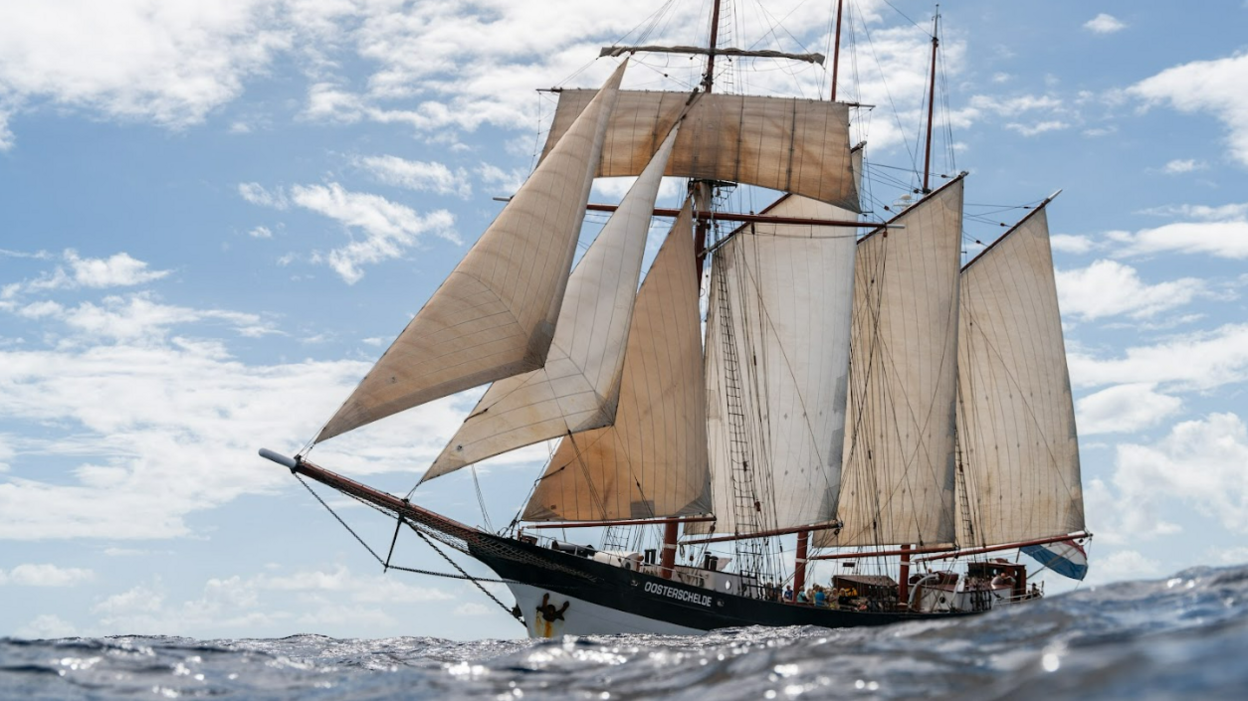
The tall ship is recreating Darwin's famous voyage aboard the Beagle
- Published
A tall ship recreating Charles Darwin's famous journey aboard the HMS Beagle has reached the halfway point of its voyage.
The 107-year-old Oosterschelde left Plymouth, in Devon, in August last year on a two-year journey around the globe.
The voyage is being used to train 200 young conservationists from around the world onboard the ship, which has been dubbed the "world's most exciting classroom".
Stewart McPherson, founder and project leader of Darwin200, said: "We're training the world's most amazing young conservationists to create leaders to change the world of tomorrow."
He said the "really intense" programme covered "a rainbow of subjects" from "marine iguanas in the Galapagos to parrots in south America".
The team also live stream lessons to schools around the world each week, Mr McPherson said.
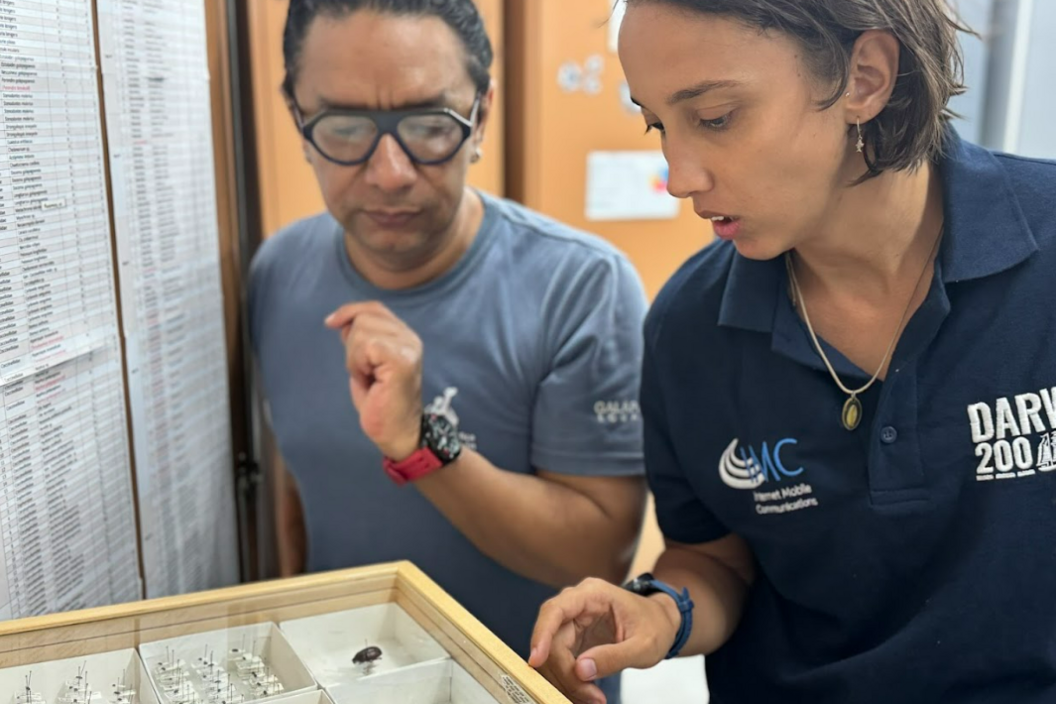
The journey is being used to train 200 young conservationists from around the world
The voyage recreates Darwin's trip onboard the Beagle as the ship's naturalist and captain's companion, which inspired him to develop the theory of natural selection.
In May this year it reached the Galapagos Islands, which played a pivotal role in Darwin's thinking about evolution.
Darwin, who was 22 when the ship set off on its five-year journey in 1831, had originally planned to be a clergyman.
However, observing differences between species across the individual islands of Galapagos, as well as his discovery of several extinct species of giant mammals in South America, caused him to question the biblical account of creation and eventually publish On the Origin of Species, his masterwork.
The team on the ship have been working with young conservationists to make scientific discoveries of their own.
Mr McPherson said one team had "rediscovered a lost species of gecko, that was thought to be extinct, another documented completely new behaviour in a species of octopus off the coast of Brazil".
He said a "bug survey" across several locations including Easter Island had also discovered "10 new species of invertebrates" and that "kids across the world" would be asked to help name the species.
The ship is currently sailing around the islands of the South Pacific before heading on to New Zealand and Australia later this year.
Follow BBC Devon on X (formerly Twitter), external, Facebook, external and Instagram, external. Send your story ideas to spotlight@bbc.co.uk, external.
Related topics
- Published25 May 2024
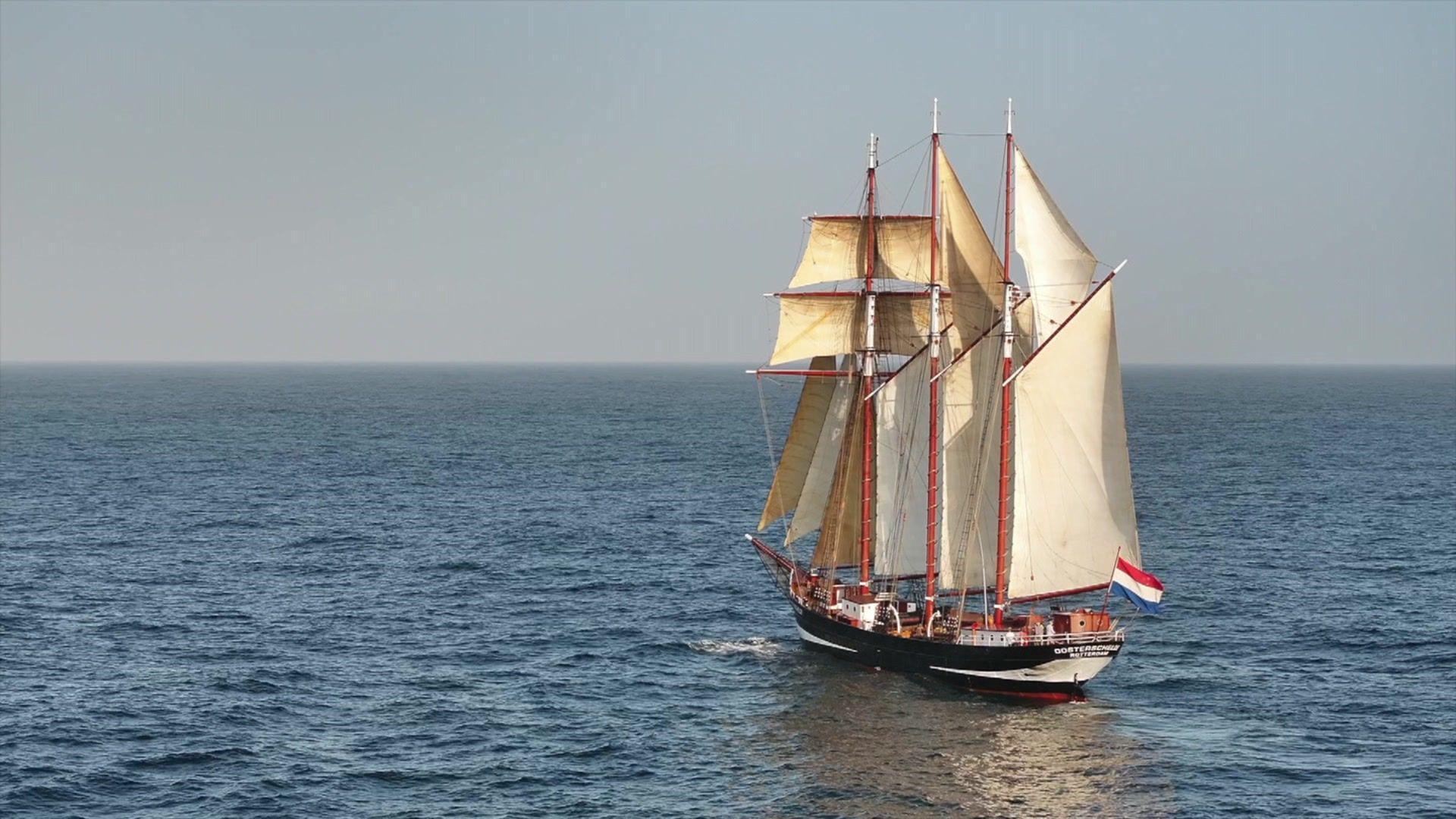
- Published13 August 2023
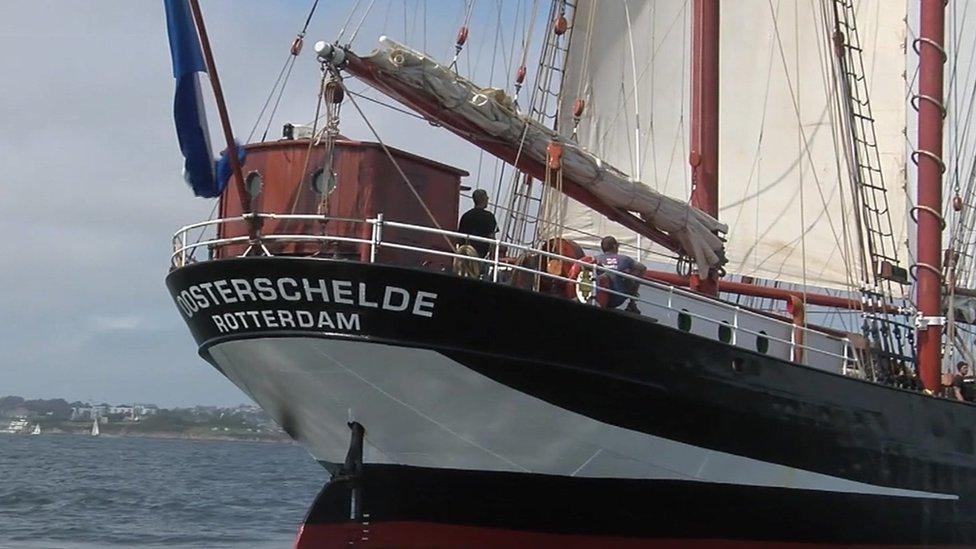
- Published24 November 2020
